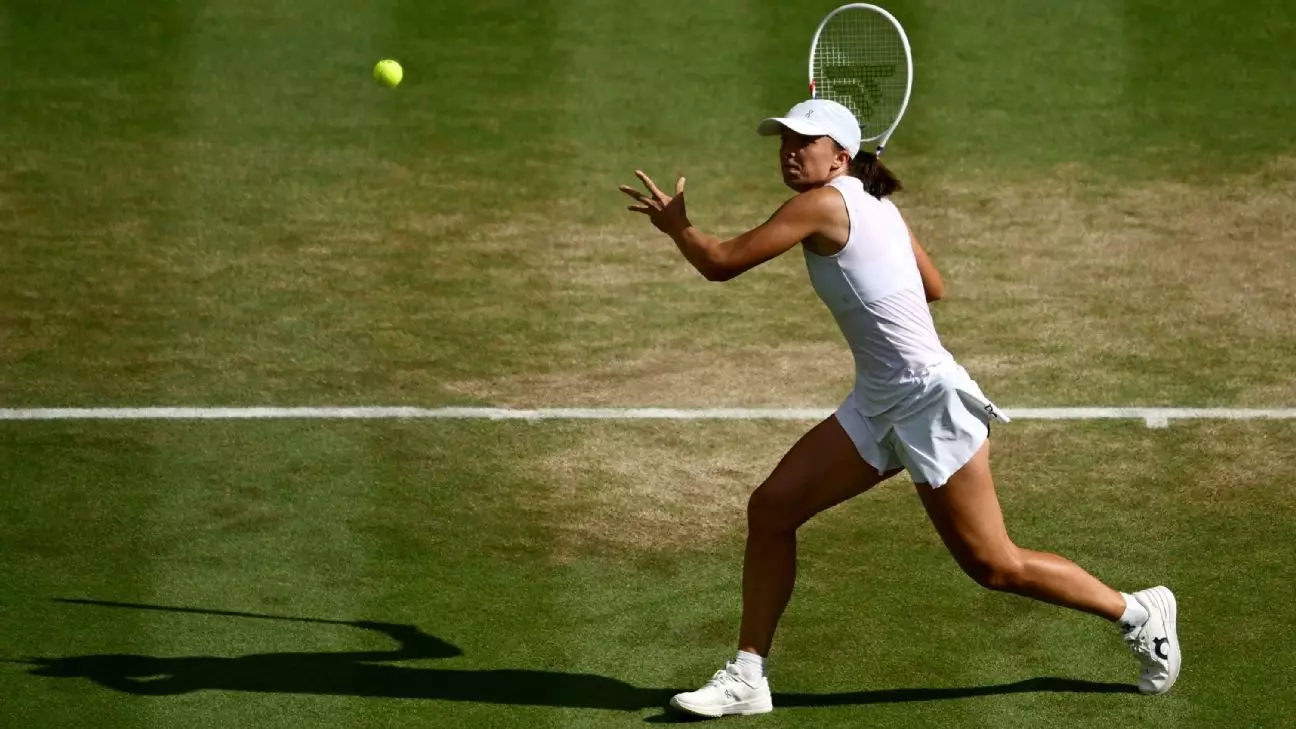Iga Swiatek’s conquest at Wimbledon was nothing short of a phenomenon that shattered expectations and historical records. Her swift, ruthless performance—placing an exclamation point on her career with a 6-0, 6-0 victory—highlighted her extraordinary talent, yet it also cast a stark light on broader issues within the sport. While her victory was lauded as a remarkable feat, beneath the celebration lurks a sobering reminder of the risks inherent in a hyper-focused approach to success. In a world obsessed with winning at all costs, Swiatek’s display reminds us that the pursuit of perfection often comes with collateral damage—be it overstressed players, an over-commercialized sport, or a competitive landscape that leaves little room for humility and growth.
Breaking Records, but at What Cost?
Swiatek’s accomplishment marked her as a trailblazer—only the eighth woman in history to claim major titles on all three surfaces, and the fastest to reach 100 Grand Slam match wins since Serena Williams. These benchmarks are impressive, yet they risk becoming hollow symbols in a sport that increasingly values titles over the quality of competition and player well-being. Her rapid ascent reveals an intense, almost machine-like pursuit of excellence, raising questions about the toll this relentless drive exacts. It’s one thing to aim for greatness, but another to become locked into a cycle where victories define worth, often neglecting the human emotions and mental health challenges athletes face behind the scenes.
The Flawed Glory of a Totalitarian Success Narrative
Swiatek’s story is one of resilience, but it also exposes the problematic narrative idolizing unwavering dominance. Her controversial doping ban, which stemmed from an accidental exposure to contaminated medication, underscores how fragile and unpredictable even the most meticulously crafted careers can be. It’s tempting to focus solely on her wins, but doing so risks overshadowing the complexities, setbacks, and moral ambiguities that shape her journey. Success from such adversity should be celebrated; however, the fixation on perfection often diminishes the importance of empathy, health, and the long-term sustainability of athletes’ careers.
Unequal Opportunities and the Rise of Youth
The fact that Amanda Anisimova, a 23-year-old semifinalist with a compelling story of redemption and mental health advocacy, was overshadowed by Swiatek’s spectacular final speaks to a wider imbalance in tennis’s ecosystem. While Swiatek’s achievements are undeniable, her dominance also raises questions about the accessibility of the sport for emerging talents and marginalized voices. Anisimova’s struggle to re-enter the main draw after years of mental health and ranking issues exemplifies the barriers many players face. The sport’s current trajectory favors those who can withstand intense pressure, often sidelining exceptional talents who might champion inclusivity and mental health support—a critique that looms larger as we laud relentless wins rather than holistic development.
The Glass Ceiling in Female Tennis: Progress or Complacency?
Swiatek’s ascent and the historical rarity of her achievements highlight progress, yet they also expose how female tennis continues to grapple with structural inequalities. Her status as the only active woman in the record books signals both her unique talent and the persistent barriers that hinder broader representation. The sport’s obsession with surface versatility and flawless victories can distract from fostering diverse role models and ensuring equitable opportunities. As tennis society celebrates new milestones, genuine progress demands a reflection on whether the current system truly supports sustained, inclusive growth or merely elevates select stars while neglecting the broader ecosystem.
The Unvarnished Reality: Success Comes with a Price
Swiatek’s story is a potent reminder that excellence in sports isn’t purely about glory; it’s intertwined with sacrifices, setbacks, and even ethical dilemmas. Her fortunate yet complicated journey—marked by a doping ban and mental health struggles—challenges the narrative of unassailable heroism. We must ask ourselves whether our obsession with athletes’ winning streaks, their flawless victories, and record-breaking performances potentially glamorizes a culture that values results over human complexity. Intense focus on winning can sometimes diminish the importance of well-being, community, and integrity, revealing the darker side of what it means to chase greatness.
The glamorization of Swiatek’s dominance must be tempered by a critical awareness of the broader implications—questioning whether victory at any cost is truly worth it or if a more compassionate, balanced approach might serve the sport, and its athletes, better in the long run.


Leave a Reply